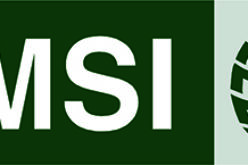Authored By – Anthony K. Stanley
The benefits of smart technology have never been more apparent. Smart tech has enabled users to execute tasks hassle-free – from facilitating hands-free communication via smart glasses to strengthening house security through a home automation system. This efficiency and convenience are the cornerstones of the digital age, enabling everyone to enjoy easier lives thanks to tech innovations.
With its various benefits, it’s no surprise that more and more people are leveraging the advantages of smart tech. For instance, the market value of smart homes was $79.16 billion in 2022 and is expected to increase until 2030. This indicates the rising trend of integrating smart technology into our daily lives. Aside from houses, more devices are also incorporating smart technology, such as AI-powered glasses and watches. Below, we take a look at what’s new in smart tech:
Smart glasses

Today, smart technology has enabled users to integrate applications with wearable essentials like glasses in a convenient manner. The Ray-Ban Meta smart glasses allow users to capture photos and videos and even livestream to social media apps like Facebook and Instagram. More recently, Meta announced that it will integrate AI features into the Ray-Ban smart glasses, which can help identify animals, objects, and monuments within wearers’ lines of sight and help them navigate unfamiliar places. These AI features can also translate English, French, German, Italian, and Spanish. Users can access the intelligent assistant by saying “Hey Meta,” followed by a prompt or a question.
Smart homes

Smart homes are also enjoying more seamless connectivity today, thanks to the emergence of Matter, an open-source interoperability standard. Matter helps simplify the system of your smart home by permitting internet-connected devices created by different manufacturers to easily communicate with and connect to your house’s smart appliances. Device creators must comply with the Matter standard to ensure their gadgets are compatible with smart home voice services such as Apple’s Siri, Google Assistant, and Amazon’s Alexa. This allows you to set up or activate Matter-supported devices like light bulbs and smart locks with Alexa, Google Assistant, or Apple Homekit without worrying about connectivity. Android and iOS devices are also built with the Matter standard, so you can use your tablets or smartphones to control your devices through any smart home platform app.
Smartwatches

Watches have also leveraged smart tech to help users take care of their health. For instance, the Apple Watch enables you to monitor your heart rate, check blood oxygen levels, and even contact emergency services if something happens. It can also help you track your workout progress and map out your locations during a hike through the Compass app. Recently, health and wellness company Apollo Neuroscience partnered with Apple Watch to enable wearers to enjoy better sleep and relieve stress. By launching Apple Watch Controls, you can now use your Apple smartwatch to access and play Apollo Vibes without having to use your phone to control the features of Apollo’s wearable tech. The Apollo Vibes is a collection of low-frequency sound waves and soothing vibrations that activate the vagus nerve, stimulating your rest-and-digest response to help you relax and feel calm. The recent integration of Apollo Vibes into the Apple Watch system enables wearers to further enjoy the benefits of smart tech by prioritizing their health and wellness.
As the digital age continues to evolve, smart tech is poised to elevate and improve continuously. From seamless smart home connectivity to integrated wearable apps, smart tech innovations are making people’s lives much easier. Interestingly, these smart wearables and Internet of Things products will have far-reaching impacts on the industrial landscape as well. Given this unceasing innovation, businesses must pursue tech training to stay ahead of the curve. Your business can take full advantage of what they offer by upskilling your workforce to keep pace with these technologies.
Author Bio: Thomas Street is a freelance tech writer with a passion for researching the latest technologies, gadgets, and trends in business. When he’s not working, Thomas enjoys going on hikes with his friends.











